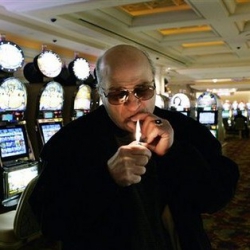
When a Smoking Ban Was Discussed in Atlantic City in 2009, 5 of 11 Casinos Said They Would File for Bankruptcy.
A Las Vegas group is demanding to have smoke-free casinos on the Vegas Strip. The group, which is comprised of many casino employees, says they are making their demands on the behalf of casino employees in the area.
On Tuesday, a collection of gamblers, dealers, and union workers staged a rally outside the Sands Expo. They gathered at the Sands Expo, because that is where the 2015 Global Gaming Expo is taking place this year. The group was small in comparison to other casino protests seen in the past year. About 20 people are said to have attended the rally.
Little Chance of a New Law
Legal experts see the protestors’ cause as an uphill struggle, one which is unlikely to gain much traction. Economic reasons dictate that Las Vegas casinos should remain smoking environments. To ban smoking in a casino would drive away many customers, far more than it is likely to attracct.
Gamblers come to Las Vegas Strip resorts for entertainment and gaming. They come for leisure, which often includes alcoholic drinks and unrestrained smoking. While gambling, they want to enjoy what some people consider vices. Waiting until they could go outside to smoke likely would make them stressed and discontent. Smoke breaks also would stop the flow of betting, giving them a chance to decide on a wiser course of action. Knowing the hassle, many would not show up in the first place. Thus, casinos do not want to ban smoking.
Secondhand Smoke Being Protested
For the protestors, those considerations should not matter. They say dealers are dying because of secondhand smoke, so the casinos should ban cigarettes and cigars.
Cynthia Falls, who is a member of the Transport Workers Union Local 721, said that the casinos’ policies have real-world consequences. She said, “Our coworkers are dying from secondhand smoke. I have 100 coworkers of mine at a Wynn property that have had cancer, over 50 have died.”
Those protesting believe the casinos overstate the damage a smoking ban would have, in order to maintain their full revenue stream. Anti-smoking advocates believe casinos over-estimate the number of players who would stay home. The
Smoke Free Gaming of America
Smoke Free Gaming of America chairwoman Stephanie Steinberg says that the gaming companies know the truth, because most of them have instituted smoking bans in other parts of the country. Steinberg said, “We’re fed up with having to breathe cigarette smoke every time we walk into a casino or cigar smoke. Over 800 casinos and racetracks are non-smoking in other states and these very same gaming companies that are here in Nevada, are also operating smoke free in other states.
Several U.S. states have full smoking bans in place: Delaware, Illinois, and Iowa. The city of New Orleans instituted a smoking ban on the French Quarter earlier this year, along with a ban on the riverboat casinos. In fact, each of the places named have significant casino industries, yet those gaming venues continue to be profitable with bans in place.
David Schwartz on the Ban’s Effect
David Schwartz of the UNLV Center for Gaming Research says the casinos’ complaints are fact-based. Having studied the numbers, Schwartz says that revenues do decline when smoke-free environments are required. He said, “The negatives would be that in every jurisdiction where they have banned smoking, the win has gone down, the revenues have gone down.”
To make his point, the gaming analyst cited statistics in Delaware from 1997 to 2005, which had a 8% to 16% decline, and in Illinois from 1997 to 2008, which had a 22% decline. Those represent major drops in a company’s numbers, if they can be attributed to a smoking ban and no other market factors.
Stephanie Steinberg remains skeptical. She said, “Eighty percent of gamblers do not smoke.”
If Steinberg’s statistic is correct and David Schwartz is to be believed, it would mean that 50% to 75% of the smokers in Delware refused to go back to the casino after the ban. In Illinois, 100% of the smokers refused to play anymore.
Analyzing Gaming Revenues
That might be the case, though one would have to analyze other factors. For instance, how many people stopped going to the brick-and-mortar casinos and started playing online in those years? Did gaming opportunities in-state and in other nearby states draw players from casinos in Illinois and Delaware during the years cited? Did economic conditions or other decisions management made make a change in the financial results?
Determining cause-and-effect is difficult in any situation. No doubt, a smoking ban is going to hurt a casino, which is why they resent having to enforce such policies. How much it effects the numbers is the key question, and one with few unbiased analysts to make a determination.
Whatever the case, the protesters’ actions outside the Global Gaming Expo are not likely to have an effect–not for now, anyway.
